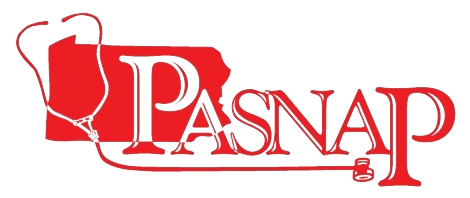HIPAA
About This Course
Over the years with the changes in HIPAA compliance, coupled with the number of new Nurses joining the profession, many issues in compliance have been identified. Nurses who have been in practice for years, are also finding themselves struggling with the violations that are centered around the use of the documentation system, as well as social media use. We have identified a problem that exists within the practice of nursing regarding patient privacy. This activity will enhance your understanding of compliance. After meeting with many of you on an individual basis, we have established the need for this education. This activity will be web-based allowing the learner to complete at their leisure.
This course will include:
Agenda:
- Introduction to HIPPA
- Electronic Data Collection and Compliance
- Case study and HIPAA Violations
- Social Media and Conclusion
Reference material to further your education regarding HIPAA and how it relates to your employment.
- Moore, W., & Frye, S. (2019). Review of HIPAA, Part 1: history, protected health information, and privacy and security rules. Journal of nuclear medicine technology, 47(4), 269-272.
HIPAA provides rules for protected health information (PHI) and what should be protected and secured. The privacy rule regulates the use and disclosure of PHI and sets standards that an entity working with health data must follow to protect patients’ private medical information. The HIPAA security rule complements the privacy rule and requires entities to implement physical, technical, and administrative safeguards to protect the privacy of PHI. This article—part 1 of a 2-part series—is a refresher on HIPAA, its history, its rules, its implications, and the role that imaging professionals play
- Tariq, R. A., & Hackert, P. B. (2018). Patient confidentiality.
Ensuring the security, privacy, and protection of patients’ healthcare data is critical for all healthcare personnel and institutions. In this age of fast-evolving information technology, this is truer than ever before. In the past, healthcare workers often collected patient data for research and usually only omitted the patients’ names. This is no longer permitted, now any protected health information (PHI) that can identify a patient or the patient’s relatives, employers, or household members, must be omitted before being used for research. The health insurance portability and accountability act (HIPAA) public law 104-191, was enacted into federal law to ensure that that patient medical data remains private and secure.
- Mbonihankuye, S., Nkunzimana, A., & Ndagijimana, A. (2019). Healthcare data security technology: HIPAA compliance. Wireless communications and mobile computing, 2019.
The protection of the privacy of the patients and the security of their information are the most imperative obstacles to obtain their intakes when considering the adoption of useful health data in the electronic field of healthcare industries. Adapted from ANCC IAA template 10.2021 REVISED 10.2021 8
- De Simone, D. M. (2019). When is accessing medical records a HIPAA breach. Journal of Nursing Regulation, 10(3), 34-36.
After a well-known actor was treated at a Chicago, Illinois, hospital, word spread through the media that many hospital employees were reportedly terminated for improper or unauthorized access in viewing his medical record. In high-profile hospital stays, healthcare workers may be tempted to open a celebrity medical record; however, the consequences of such unauthorized access may be grave and involve more than the loss of employment. This article reviews the Health Insurance Portability and Accountability Act of 1996 (HIPAA) regulations, how violations are addressed, and the role of regulators in preventing and addressing such breaches.
- Lefebvre, C., McKinney, K., Glass, C., Cline, D., Franasiak, R., Husain, I., … & Stopyra, J. (2020). Social media usage among nurses: perceptions and practices. JONA: The Journal of Nursing Administration, 50(3), 135-141.
Social media usage is common among nurses. Social media perceptions and practices among nurses vary considerably. Wellinformed policy and targeted education are needed to guide social media use among healthcare workers. This was a single-center prospective observational study involving nurses at a large academic medical center. Nurses completed an anon
- Presenter: Angela Cleghorn MSN, RN
Director of Education Pennsylvania association of staff nurses and allied professionals (PASNAP).
- This activity will be presented in an online format, accessible by PASNAP members.
- Once the educational activity is completed, there will be a post quiz to assess your knowledge, followed by an evaluation. All must be completed to obtain credit.
- This activity will be one Contact hour (1).
- This activity will begin October 1, 2022 and will terminate on September 30, 2024.
Required Disclosures to Learners
This activity will be available online at PASNAP.com. The activity is 1 contact hour, followed by a 10-question post-test. Completion of the post-test with a score of 100% is required for credit.
Disclosure Statements
This activity has been submitted to the Pennsylvania State Nurses Association for approval to award contact hours. The Pennsylvania State Nurses Association Approver Unit is accredited as an approver of nursing continuing professional development by the American Nurses Credentialing Center’s Commission on Accreditation. This nursing continuing professional development activity was approved by Pennsylvania State Nurses Association, an accredited approver by the American Nurses Credentialing Center’s Commission on Accreditation. None of the planners for this activity have relevant financial relationship(s) to disclose with ineligible companies. No relevant financial relationships were identified for any individuals with the ability to control content of the activity.




